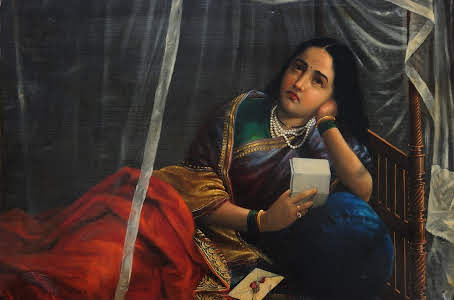Indian Heritage & Culture
Raja Ravi Varma
- 29 Apr 2020
- 2 min read
Why in News
29th April is the birth anniversary of the famed Indian painter Raja Ravi Varma (1848-1906).
- He is remembered for giving Indians their western, classical representations of Hindu gods and goddesses.
Key Points
- Early days and training:
- Varma was born into an aristocratic family in Travancore (Kerala).
- At the age of 14, Varma was patronised by Ayilyam Thirunal, the then ruler of Travancore, and went on to receive training in watercolours from Ramaswamy Naidu, the royal painter.
- Contributions:
- Made around 7,000 paintings.
- Apart from painting Hindu mythological figures, Varma also made portraits of many Indians as well as Europeans.
- Varma worked on both portrait and landscape paintings, and is considered among the first Indian artists to use oil paints.
- He continues to be regarded as the most important representative of the Europeanised school of painting in India.
- Lithographic press: He mastered the reproduction of his work on the lithographic press– through which his paintings spread far and wide.
- Lithographic press is a method of printing based on the principle that oil and water do not mix.
- Paintings were earlier sent to Germany and Austria to be lithographed.
- Varma set up his own printing press in Maharashtra — first in Ghatkopar and eventually in Lonavala in 1894.
- Through his printing press, Varma’s paintings travelled into the prayer and living rooms of working-class homes.
- Famous works: Damayanti Talking to a Swan, Shakuntala Looking for Dushyanta, Nair Lady Adorning Her Hair, and Shantanu and Matsyagandha.
- Awards and Honours:
- In 1904, the British colonial government awarded Varma with the Kaiser-i-Hind Gold Medal.
- In 2013, a crater on the planet Mercury was named in his honour.





